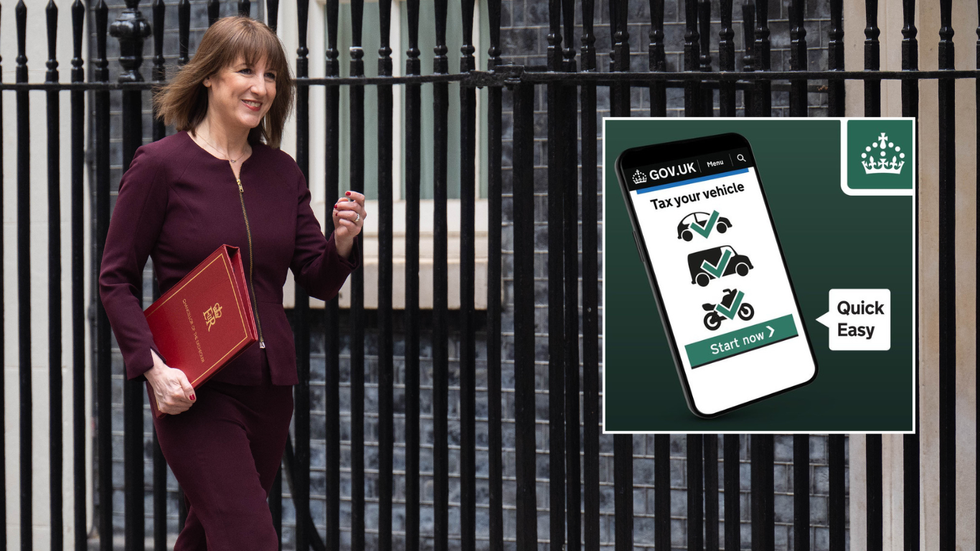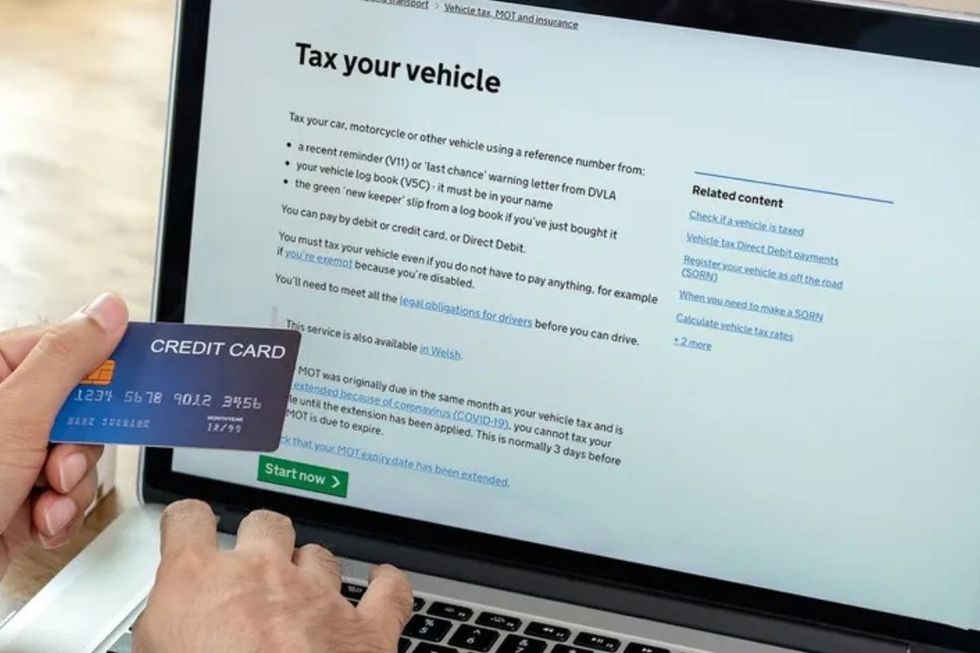WATCH: Rachel Reeves introduces new car taxes for petrol, diesel and electric vehicles
GB NEWS
From today (April 1), electric vehicles will be subject to new Expensive Car Supplement fees
Don't Miss
Most Read
Trending on GB News
Electric vehicle owners have been warned of major car tax rises, which launch today, with millions now facing new £425 costs yearly.
The Expensive Car Supplement, otherwise known as the luxury car tax, will now apply to electric vehicles priced over £40,000, ending their eight-year-long exemptions.
The move was announced by former Chancellor of the Exchequer Jeremy Hunt under the Conservative Government, with the current Chancellor Rachel Reeves confirming it in the Autumn Budget last year.
Previously, electric vehicles had received certain tax exemptions, but in a bid to level the playing field between all road users, EV owners will now have to pay their fair share.
Do you have a story you'd like to share? Get in touch by emailingmotoring@gbnews.uk

The Expensive Car Supplement applies to all vehicles priced over £40,000
PA/X/DVLA
Chris Rosamond, current affairs and features editor at Auto Express, said "Levying what is basically a tax set on petrol cars eight years ago onto EVs today is unfair, especially when you consider the large sums involved; currently, it is £425 from years two to six, a total of £2,125 over five years.
"And it is not just new EVs - regardless of the price paid for a used EV, if it was originally bought for more than £40,000 and first registered from April this year, future owners will still be liable for the charge."
He warned that with the private EV uptake already struggling and cost being one of the main deterrents for potential buyers, "this change risks slowing adoption at a critical time".
Under the Zero Emission Vehicle mandate, the UK will need to have at least 28 per cent of new car sales come from electric vehicles by this year before moving to 100 per cent in 2035.
Rosamond stated the Government should be supporting drivers in making the switch to EVs, "not penalising them" with new taxes, which could risk disrupting the ZEV mandate.
He said more needs to be done to encourage drivers to move to electric vehicles rather than giving them "another reason to hold off from making the shift".
Data from the group found that currently, just 19 per cent of UK motorists are "very likely" to consider an EV for their next car, with 57 per cent citing cost as the main issue.
Meanwhile, demand for more EVs has already been "pushed more by manufacturers than pulled by consumers", with drivers remaining hesitant to buy a greener vehicle.
"When the policy was first announced, we called for EVs to remain exempt, and our position remains the same – we urge the Government to rethink this policy or risk going backwards in the drive towards electric," he added.
The threshold for the Expensive Car Supplement has remained the same since 2017 despite the price of vehicles fluctuating, prompting experts to urgently call on Chancellor Reeves to expand the rate to at least £50,000.
Paul Holland, managing director for UK/ANZ Fleet at Corpay, shared: "At a time when businesses need cost-effective options to transition to electric vehicles, further price hikes could delay adoption."
The punishing tax measures have already had an impact on the sector with Vauxhall taking action to lower the price of its electric cars to under £40,000 to help drivers avoid getting hit with additional costs.
LATEST DEVELOPMENTS:
- Police forced to spend £2.2million on repairs as 'vandals' target emergency vehicles - 'Likely much worse'
- UK could see larger vehicles imported that pose 'genuine risk' to safety amid Trump trade deal issues
- Labour forced to roll out emergency areas on 'deadly' smart motorways despite driver concerns

Experts have called on the Government to extend the Expensive Car Supplement range to £50,000
DVLAEurig Druce, managing director, Vauxhall, commented: "This new tax means that customers buying some of the more attainable electric cars on the market are now being penalised whilst at the same time we are trying to move as many British motorists to electric as quickly as possible.
"We’d urge the Government to reconsider this new measure and ensure taxation policies incentivise the majority of drivers to make the shift to electric vehicles."








